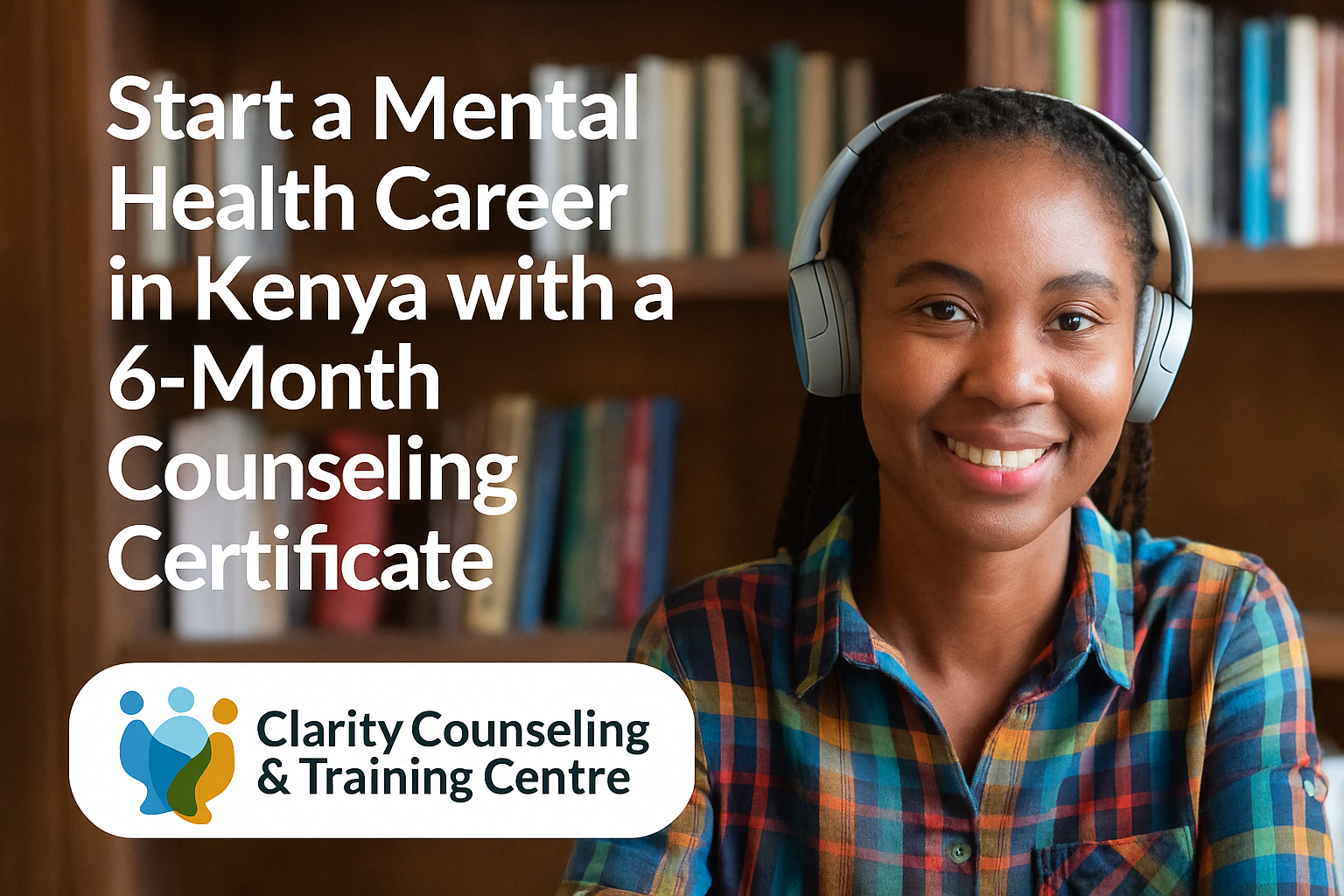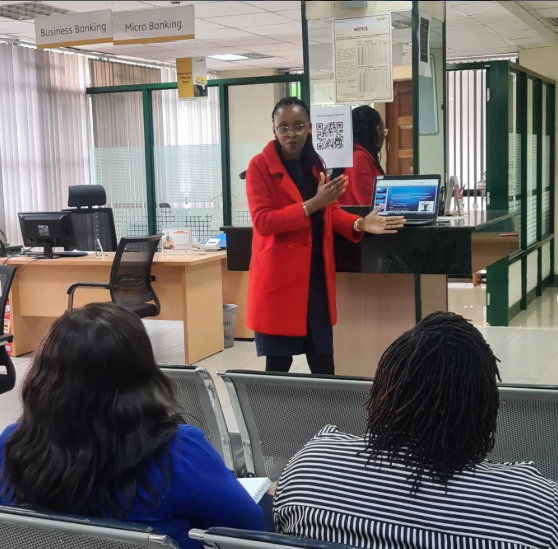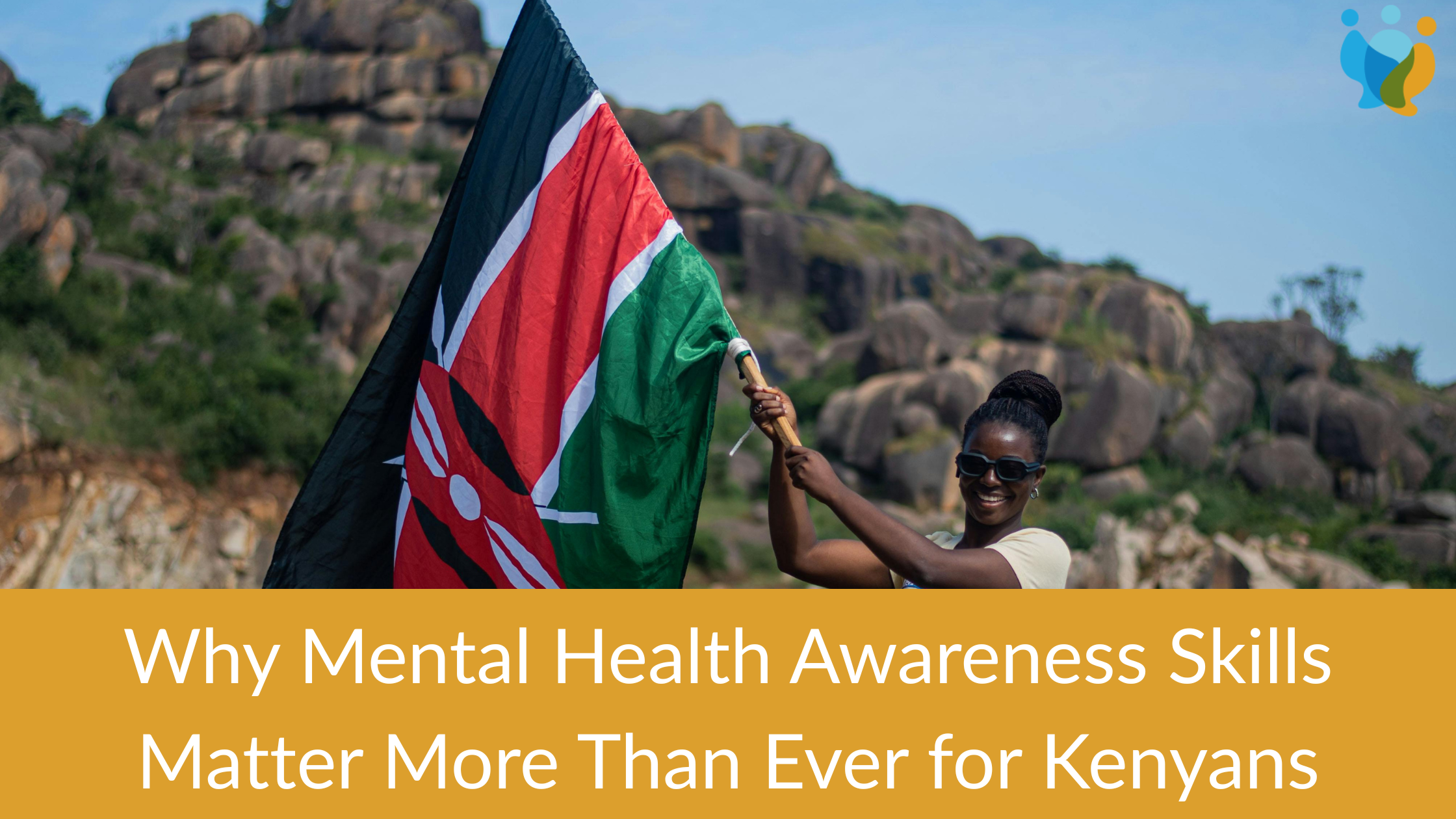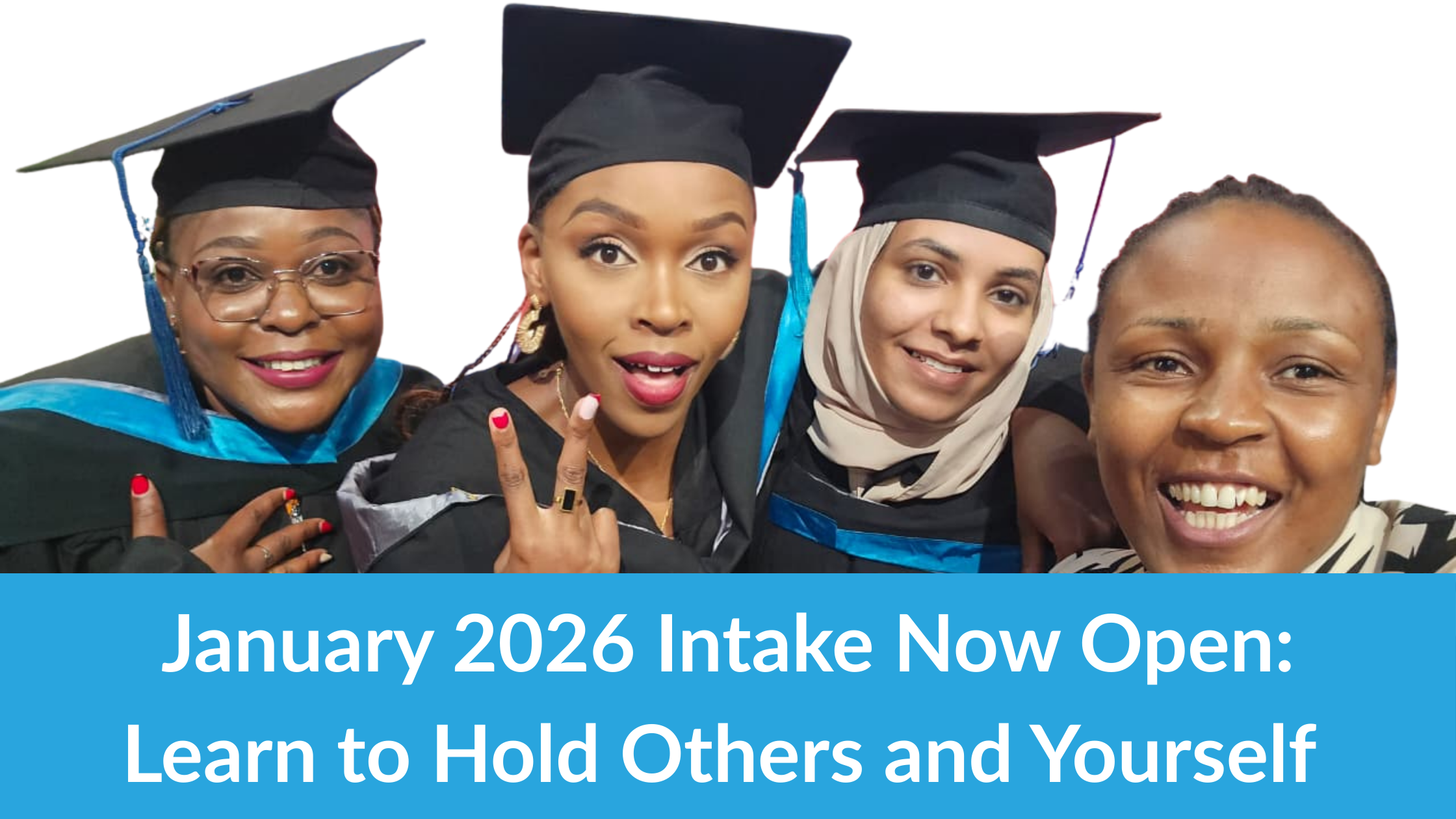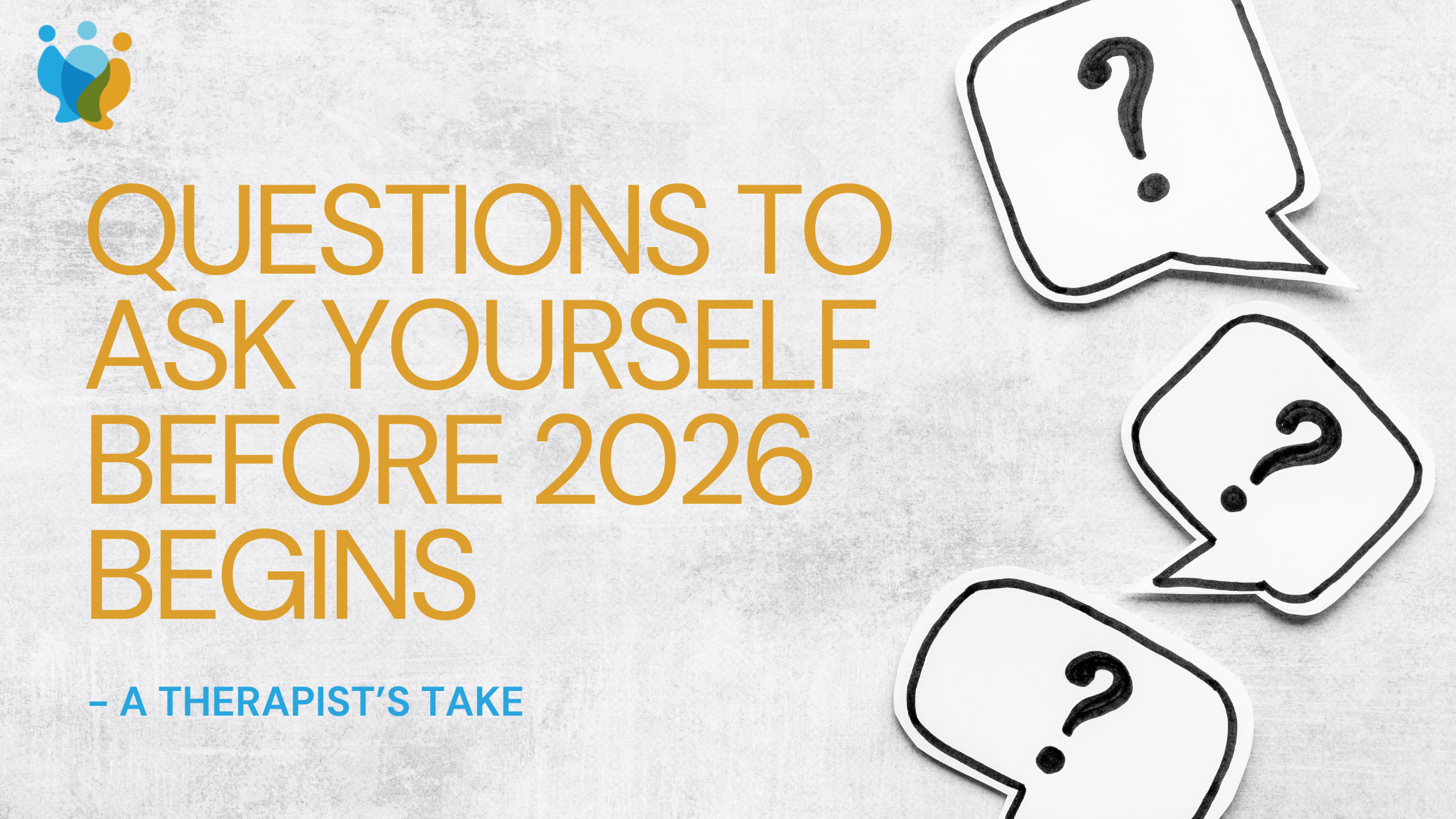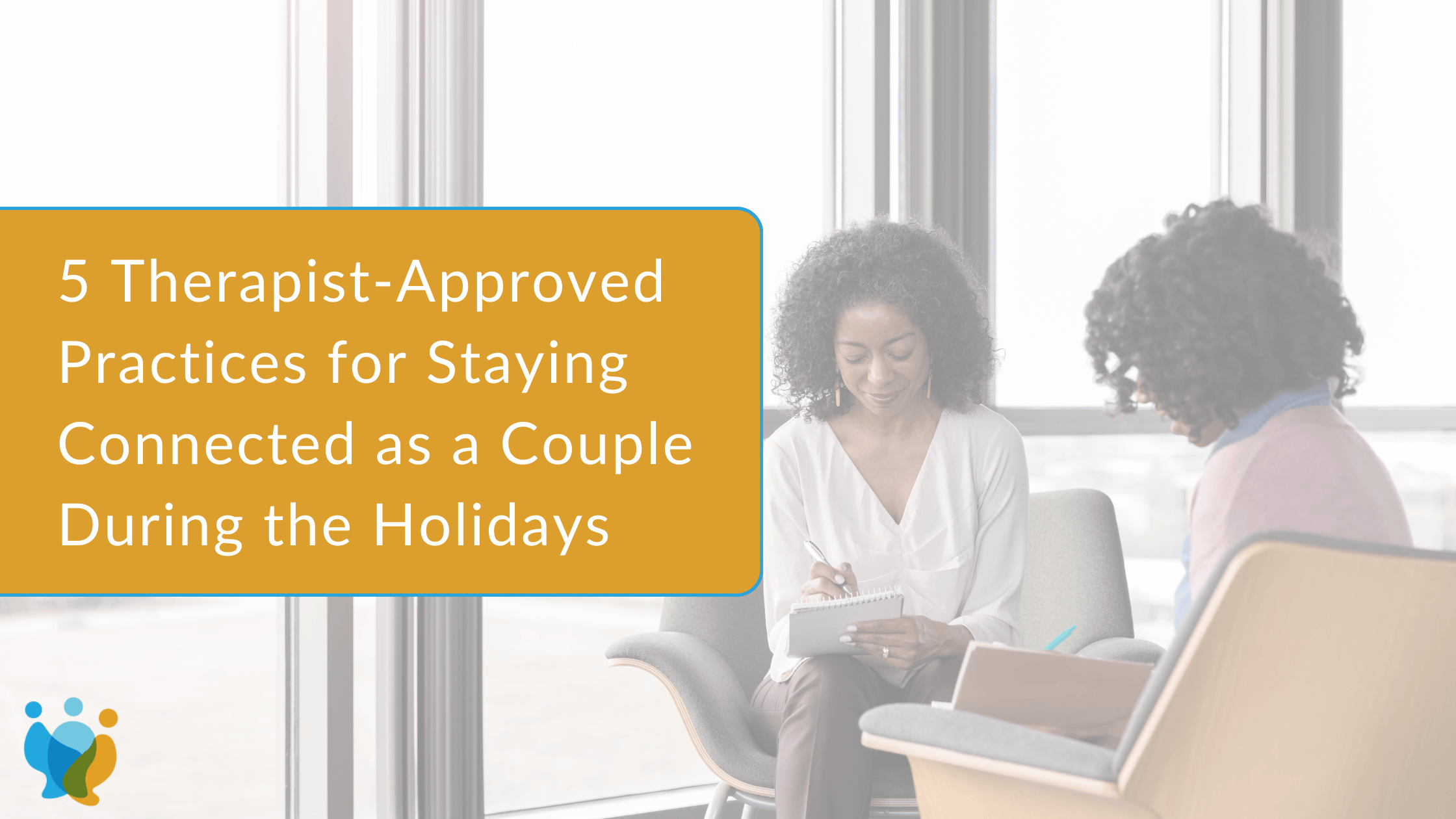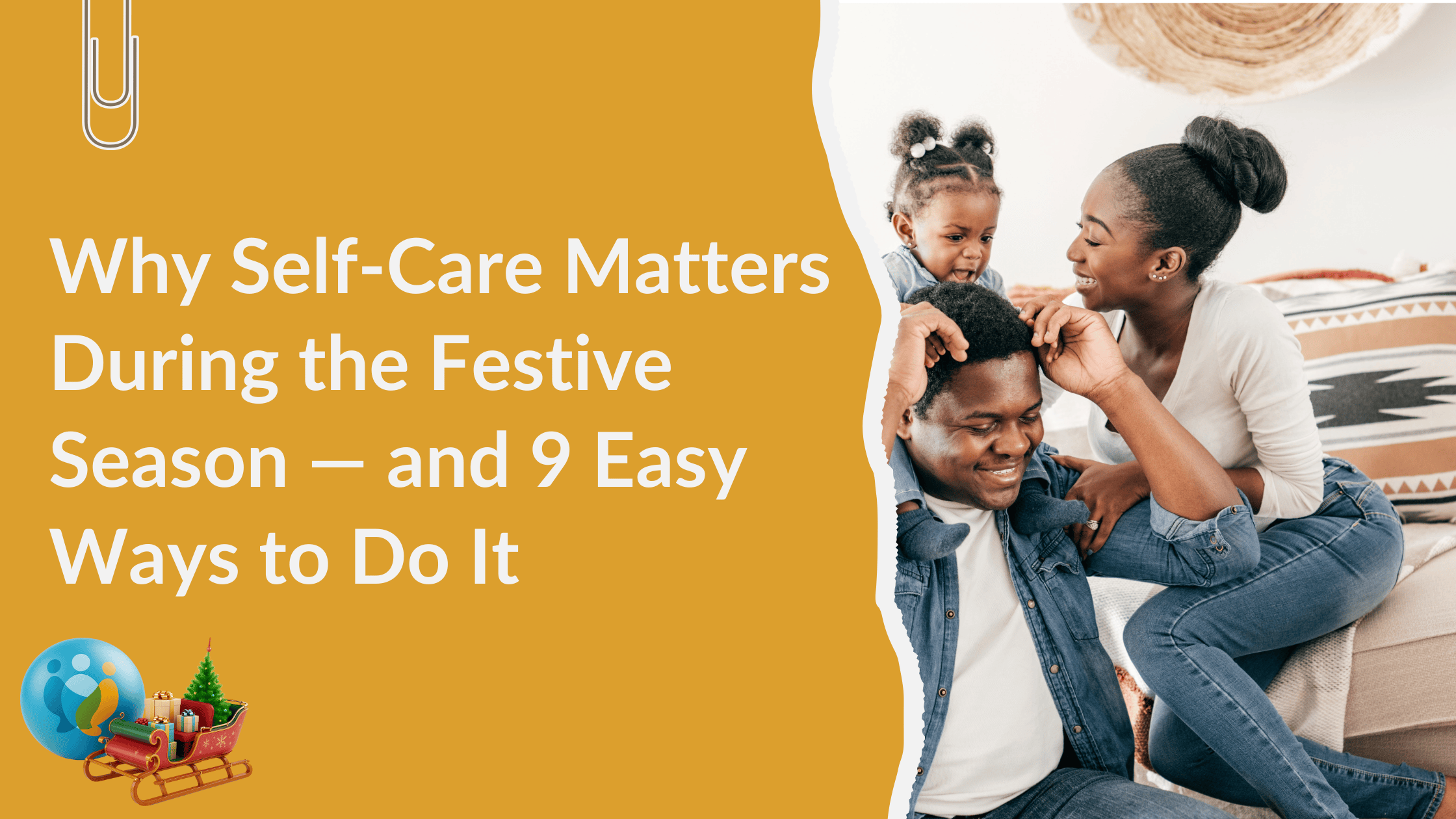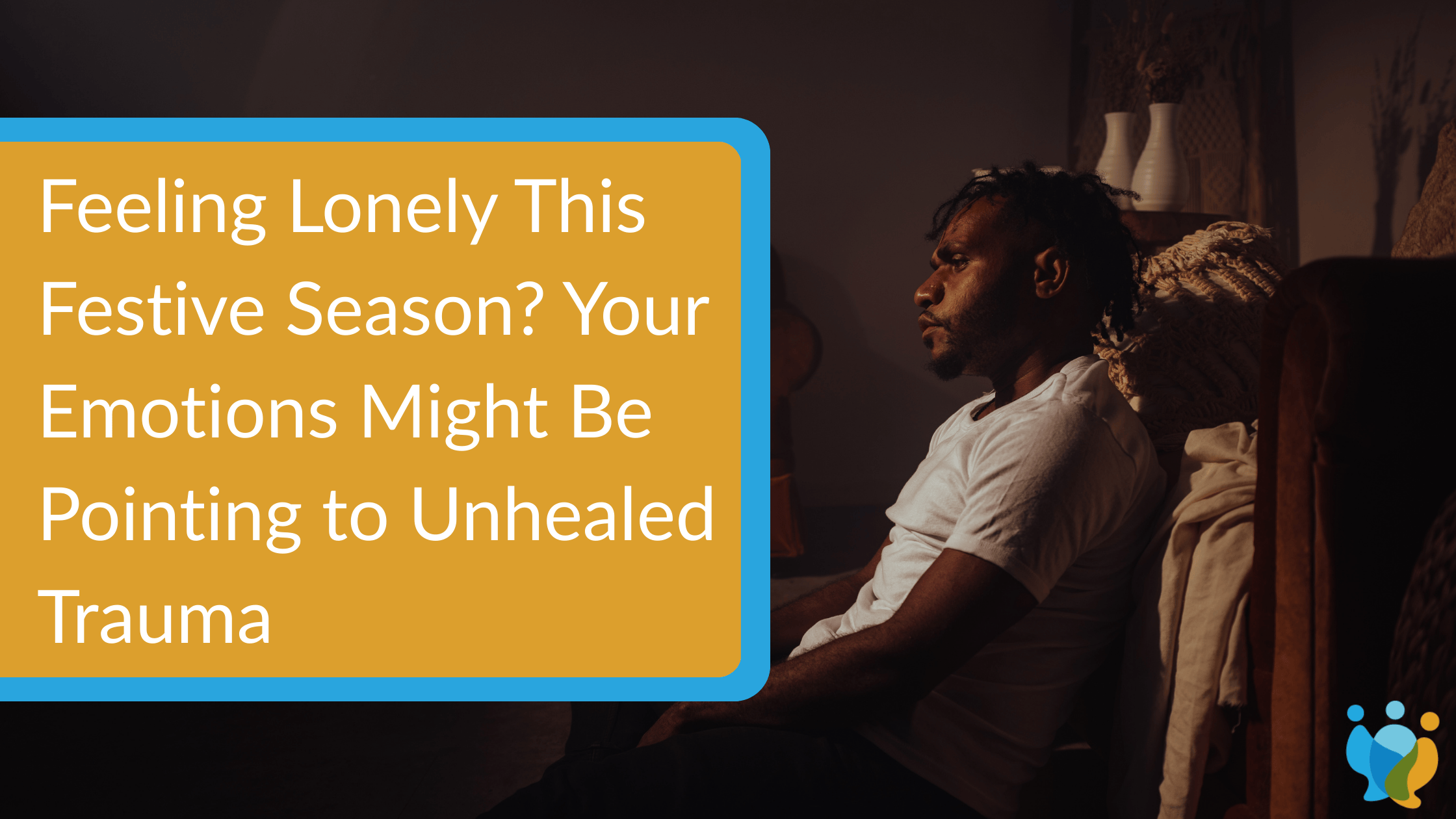The 6 NGOs Burnout Shields: How to Protect Teams with Mental Health Investment
Nairobi dusk puts on her night makeup, that glow only she can pull off.
Meanwhile, on River Road somewhere, someone’s closing shop. But in one corner of a fifth-floor office, a program officer is still typing his report. You know the one due “by the end of the day,” which somehow always means midnight.
His tea has gone cold. His WhatsApp group, Field Team North Rift, hasn’t stopped buzzing since 6 a.m. Tomorrow, he’ll travel to Turkana. Next week, a donor meeting. Then another report.
He loves this work, but lately, even the wins feel heavy.
His purpose still burns, but it flickers.
It’s not that NGO teams don’t care about balance; they do. They care deeply, maybe too deeply.
They stay long after the reports are done, answer calls past dinner, and show up for communities that have learned to expect their presence more than their families have.
But the truth is, even those driven by purpose need protecting. Passion doesn’t stop burnout; investment does.
That’s why a quiet revolution is happening across NGOs: mental health is no longer treated as a personal problem but as an organizational priority. It’s becoming the new shield. A way to protect the people who hold the weight of the world for everyone else. Here are 6 ways Clarity Counseling helps NGOs build the burnout shield.
1. Start With Conversations, Not Campaigns
The first layer of the burnout shield is simple: talk.
Before policies, before programs, there has to be permission.
Permission to say, “I’m tired,” without fearing it’ll be read as incompetence.
When teams begin talking honestly about stress, boundaries, and emotional load, they start building safety, not the kind on paper, but the kind that breathes.
Here’s what that can look like:
- Begin staff meetings with emotional check-ins (“What’s one word for how you’re arriving today?”).
- Let supervisors normalize rest by taking it themselves.
- Replace “How’s work?” with “How are you holding up this week?”
Small changes, but they shift culture. Because the real prevention starts long before burnout becomes a resignation letter.
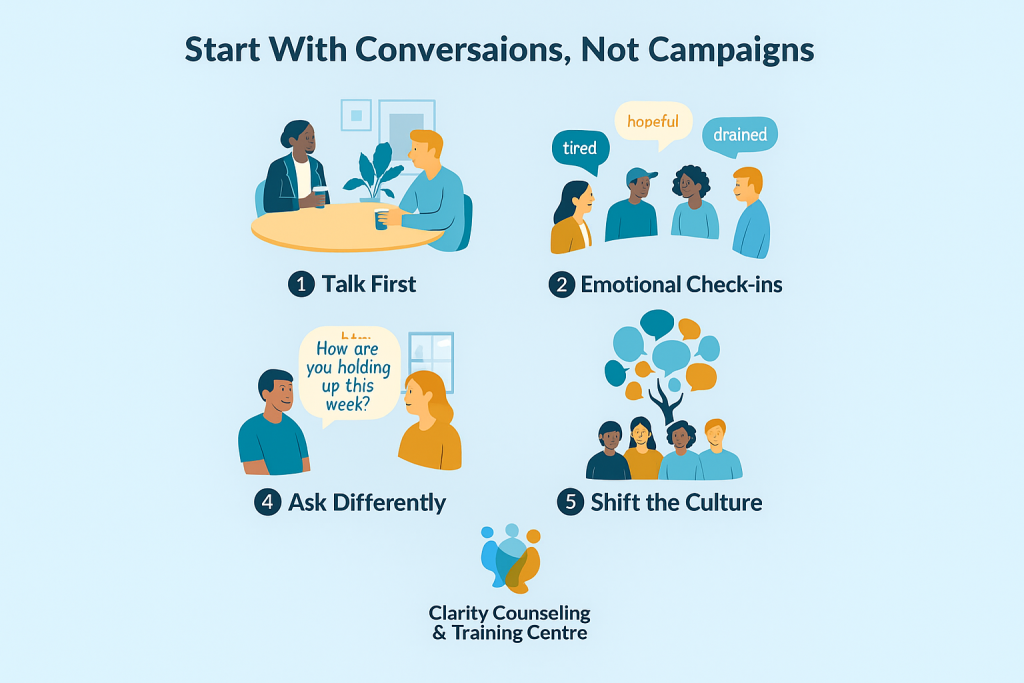
2. Offer Counseling Like You Offer Wi-Fi, a “Basic Need” in Today’s World
Let’s be honest: in most NGOs, counseling still sounds like a privilege. Something for “others.”
But NGOs work in emotionally charged spaces, gender-based violence, displacement, and poverty. You can’t absorb that daily and not carry it.
Organizations that invest in accessible, confidential therapy create their strongest protection.
Some NGOs in Kenya now partner with Nairobi therapists like Clarity Counseling & Training Centre to offer monthly sessions at reduced rates. Others embed counselors into staff welfare budgets.
Think of it this way: You wouldn’t send a team to the field without fuel or airtime. Why send them without emotional support?
When staff have somewhere safe to process the weight they carry, they return lighter, not because the work changed, but because they did.
3. Teach Emotional Intelligence, It’s the Armor You Don’t See
Burnout isn’t just physical tiredness. It’s emotional erosion. That’s why training in emotional intelligence (EQ) is a soft skill that becomes a field gear.
EQ helps staff recognize what’s happening inside them before it spills into conflict, withdrawal, or numbness.
Imagine a field coordinator feels tension rising during a partner meeting. Instead of snapping, she pauses, breathes, and names what she feels: frustration. She notices her body soften. The meeting stays on track.
That’s emotional intelligence (EQ) in action.
Practical steps NGOs can take:
- Incorporate EQ workshops into annual staff development.
- Train supervisors to recognize emotional fatigue early.
- Create reflective spaces after intense projects (a group debrief, not just a report).
The goal isn’t perfection. It’s awareness, the bridge between chaos and calm.
4. Redefine Strength Before It Breaks You
NGO culture often worships strength, the colleague who never complains, the leader who “handles it all. But strength that never stops becomes strain.
True resilience is more than “pushing through.” It’s knowing when to pause.
That’s why wellness policies must shift from slogans to systems:
- Mandatory leave that’s actually enforced.
- Rotations after emotionally heavy assignments.
- Leaders who model vulnerability without losing authority.
A regional director once told me:
“The day I told my team I was in therapy, something changed. They started breathing easier. They realized it was allowed.”
That’s leadership as medicine.

5. Measure Impact, But Count People Too
Every NGO loves metrics, impact reports, logframes, and KPIs. But here’s what no donor report will admit: a burned-out team can’t change the world. Organizations that track human sustainability alongside project outcomes always go further.
Ask yourself how many staff:
- Took leave and came back restored?
- Stayed for more than five years, not from fear, but fulfillment?
- Feel emotionally safe at work?
These numbers tell the real story. Because every sustainable project begins with a sustainable person.
6. Rebuild Work Culture Around Wholeness
A burnout shield isn’t built overnight. It’s built through hundreds of small acts that tell staff: we see you. It’s in:
- An HR officer who quietly checks on the driver who lost his brother.
- A Manager who ends a meeting 10 minutes early so the team can breathe.
- The leadership team that budgets for therapy before another billboard.
The organizations that last are those that learn that impact starts from the inside out.
Why a Burnout Shield to Protect NGOs’ Teams with Mental Health Matters
In Kenya today, NGO work goes beyond impact and reaches endurance. As global funding tightens and social needs expand, burnout is becoming the silent pandemic inside development work.
But there’s hope, and it doesn’t come from grand wellness programs. It comes from compassion, courage, and the willingness to treat people as more than deliverables.
Because when an NGO invests in its people’s mental health, it’s not just protecting workers, it’s protecting its mission.
Let Clarity Help Build Your NGO’s Mental Health Shield
If you’ve read this far, maybe you recognize the signs. Maybe you’ve been pushing through, waiting for a break that never comes.
Start small.
Talk.
Rest. Breathe.
Ask your organization what mental health support exists, and if it doesn’t, start the conversation.
And if you’re a leader, remember: your calm is contagious. The more grounded you are, the safer your team feels to do their best work.
For organizations that want to take the next step, Clarity Counseling Kenya offers:
- Training in Psychology for NGO workers
- Group Therapy & Staff Debrief Programs
- Workplace Mental Health Strategy Consultations
Because caring for others should never cost you yourself. Book a call today and plan for your team’s mental health wellness journey.

